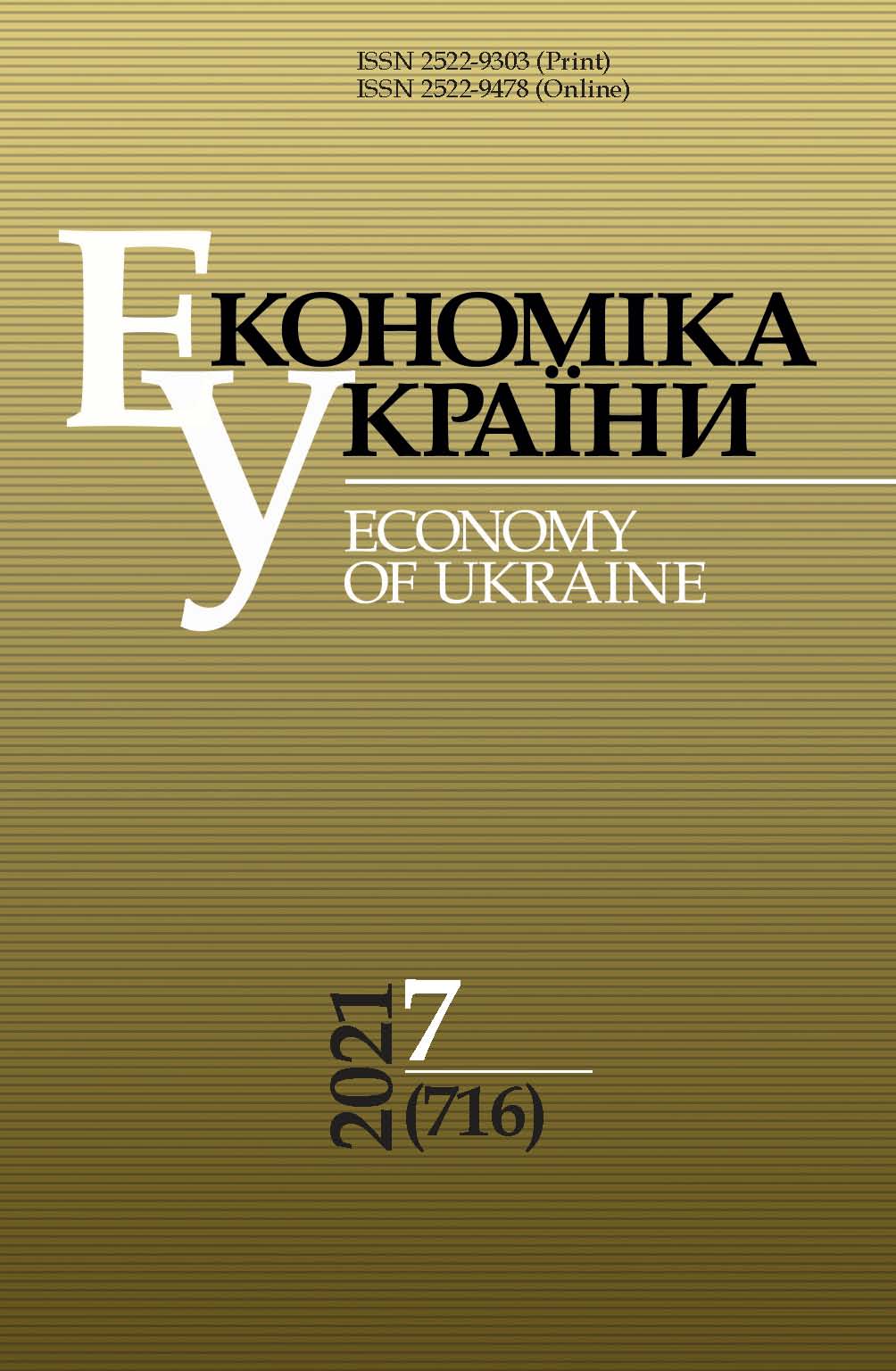GOVERNMENT REGULATION AS A FACTOR IN COUNTERACTING COVID-19
DOI:
https://doi.org/10.15407/economyukr.2021.07.027Keywords:
pandemic; lockdown; economic crisis; state regulation; quarantine; economic assistance package; COVID vaccine; vaccination of population; collective immunity.Abstract
The most successful fight against COVID-19 is demonstrated by countries with effective state institutions, which have become absolutely critical when confronting SARS-CoV-2: from quarantine restrictions, equipping hospitals and providing financial assistance packages to national economies to developing COVID vaccines, deployment of their production and mass vaccination of the population until the formation of collective immunity.
These countries are not only centers of highly adaptable business, but also of first-class research centers and leading pharmaceutical companies that have offered the world effective COVID developments and their mass production. However, the rapid application of this creative potential would be impossible without effective government regulation. After all, the price of a purely market response to SARS-CoV-2 is prohibitively high due to the inevitable loss of time and human lives in the formation of private funds sufficient to begin the development of COVID vaccines, their production, mass vaccination and the emergence of collective immunity.
Thus, government regulation has become a key factor in transforming COVID vaccines into the public good. However, due to the different quality of such regulation in different countries, this benefit has signs of “nationality”: the first to receive it are wealthy countries, developers of COVID vaccines and their closest partners, which have a high level of governance. Countries deprived of such institutional advantages have found themselves trapped by COVID-19 in the already narrow corridor of their financial capabilities. Moreover, the way out of this trap is often associated with political demands, the nature of which quite often does not apply to SARS-CoV-2 or national conditions for overcoming it.
References
Roubini N., Mihm S. Crisis Economics: A Crash Course in the Future of Finance. Moscow, Eksmo, 2011 [in Russian].
Korablin S. Macroeconomic Dynamics of Ukraine: The Trap of Commodity Markets. Institute for Economics and Forecasting, Kyiv, 2017 [in Ukrainian].
Mishchenko V., Bauman O. The system of macroprudential regulation tools and their use in Ukraine. RFI Scientific Papers, 2016, No. 4 (77), pp. 34-45 [in Ukrainian].
Kolodko Gz. W. After. Economics and politics of the post-pandemic world. Economy of Ukraine, 2020, No. 5, pp. 3-24 [in Ukrainian].
doi.org/10.32609/0042-8736-2020-5-25-44
Hosny A. The Sooner (and the Smarter), the Better: COVID-19 Containment Measures and Fiscal Responses. IMF Working Paper, March, 2021.
doi.org/10.5089/9781513571638.001
Fotiou A., Lagerborg A. Smart Containment: Lessons from Countries with Past Experience. IMF Working Paper, April, 2021.
Ebeke Ch., Jovanovic N., Valderrama L., Zhou J. Corporate Liquidity and Solvency in Europe during COVID-19: The Role of Policies. IMF Working Paper, March, 2021.
doi.org/10.5089/9781513570914.001
Agarwal R., Patrick G. What Drives Innovation? Lessons from COVID-19 R&D. IMF Working Paper, February, 2021.
doi.org/10.5089/9781513570068.001
Cross S., Rho Y., Reddy H. et al. Who funded the research behind the Oxford-AstraZeneca COVID-19 vaccine? Available at: www.medrxiv.org/content/10.1101/2021.04.08.21255103v1.full.pdf
Taquet M., Husain M., Geddes J.R. et al. Cerebral venous thrombosis and portal vein thrombosis: a retrospective cohort study of 537,913 COVID-19 cases. Available at: osf.io/a9jdq/
Heyets V., Lunina I., Stepanova O. The Formation of Fiscal Space While Overcoming Vaccine Nationalism and Ensuring Sustainability of Development. Science and Innovation, 2021, No. 17 (1), pp. 29-41.
doi.org/10.15407/scine17.01.029
Georgieva K., Gopinath G., Agarwal R. A Proposal to End the COVID-19 Pandemic. IMFBlog, May 21, 2021, available at: blogs.imf.org/2021/05/21/a-proposal-to-end-the-covid-19-pandemic/ (accessed on: 29.05.2021).
Dabla-Norris E., Khan H., Lima F. What Determines Social Distancing? Evidence from Advanced and Emerging Market Economies. IMF Working Paper, April, 2021.
Korablin S. The "lagging growth" model: Economic factors and consequences for Ukraine. Economy and Forecasting, 2016, No. 2, pp. 74-85 [in Ukrainian].
doi.org/10.15407/eip2016.02.071
Korablin S. Foreign Exchange Deadlocks of Commodity Economies. ZN,UA, October 22, 2010, available at: zn.ua/finances/kursovye_tupiki_syrievyh_ekonomik.html [in Russian].
Korablin S. Commodity Economies and International Assistance: Lessons Drawn from Ukraine's Experience. Global Economic Governance and Human Development. Simone Raudino, Arlo Poletti (Eds.). Routledge, 2019, pp. 160-177.
doi.org/10.4324/9781315169767-9
Benedek D., Gemayel E., Senhadji A., Tieman A. A Post-Pandemic Assessment of the Sustainable Development Goals. IMF Staff Discussion Note, April, 2021.
Downloads
Published
How to Cite
Issue
Section
License
Copyright (c) 2024 Economy of Ukraine

This work is licensed under a Creative Commons Attribution-NonCommercial-NoDerivatives 4.0 International License.



